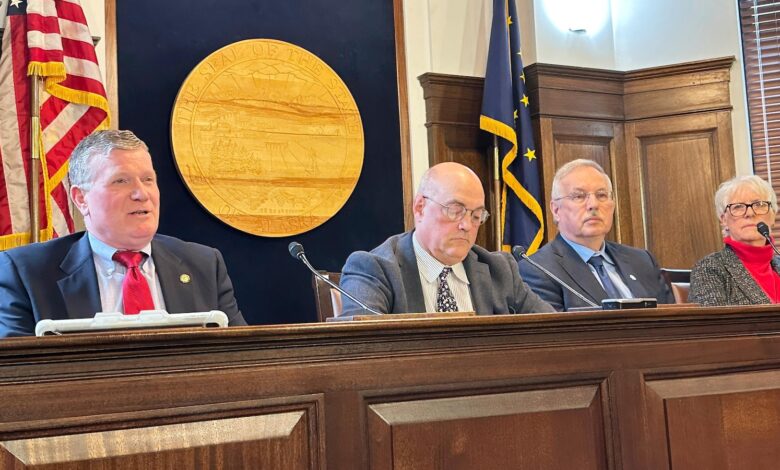Market volatility complicates work for lawmakers in Alaska

JUNEAU, Alaska — After President Donald Trump’s Return to Office
Alaska Republican Gov. Mike Dunleavy expressed optimism upon the return of President Donald Trump to office, likening it to “Christmas every day” for a state heavily reliant on oil. However, the past few months have been turbulent, impacting Alaska’s federal workforce and casting doubt on federal funding stability.
The uncertainty surrounding Trump’s fluctuating tariffs and the subsequent drop in oil prices have added complexity to Alaska’s budget planning process. With the legislative session ending in mid-May, before Trump’s temporary tariff pause expires, lawmakers face challenges in navigating the state’s financial landscape.
The ongoing debate over allocating funds between the annual oil-wealth fund check for residents, education, and other priorities has intensified. Lawmakers, reluctant to increase taxes, have depleted savings to cover budget deficits spanning over a decade.
Alaska’s economy is no stranger to the cyclical nature of oil prices, influencing government spending on projects and infrastructure. The state relies on revenue projections based on oil price forecasts, with recent fluctuations impacting budget planning.
Despite the economic uncertainties, Gov. Dunleavy remains focused on Trump’s executive order supporting increased oil and gas drilling in Alaska. The potential for investments in Alaska’s liquefied natural gas project from countries affected by Trump’s tariffs offers a glimmer of hope amid economic challenges.
Alaska’s reliance on oil revenues and the earnings from its oil-wealth investment fund underscore the state’s vulnerability to market fluctuations. The debate over the allocation of earnings for the annual dividend payment to residents versus state services continues to pose challenges for lawmakers.
Gov. Dunleavy’s proposal for a substantial dividend per resident faces opposition from legislative leaders advocating for increased funding for K-12 schools and addressing maintenance backlogs. The balance between funding priorities and sustaining the state’s financial health remains a contentious issue.
As Alaska grapples with economic uncertainty, some senators have proposed changes to oil taxes to generate revenue. However, the overall support for such measures remains limited, underscoring the complex financial landscape facing the state.





